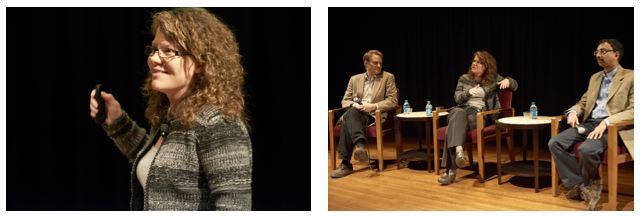
Thursday, February 12, 2015 - 12:30pm to 2:00pm
Best Buy Theater, Northrop Auditorium
With the plummeting cost of sequencing, genetic data are becoming increasingly available for use in the diagnosis, treatment, and prediction of disease. However, integrating genetic information into the practice of medicine in a robust and effective manner is challenging at every step from sequencing to clinical care. Most challenging is the interpretation of the variants identified in each test. Critical to variant analysis is access to existing knowledge on previously reported variants. Hundreds of thousands of disease-causing variants have been identified in patients with disease, yet only a small fraction of that data, and the interpretation of it, has been accessible to researchers and clinicians. The centralization of data on human genomic variation is a critical step in accelerating advances within the field of genomic medicine.
Commentator:
Prof. Bharat Thyagarajan, MD, PhD
Dept. of Laboratory Medicine & Pathology
University of Minnesota
Direct Providership
The University of Minnesota is accredited by the Accreditation Council for Continuing Medical Education (ACCME) to provide continuing medical education for physicians.
The University of Minnesota designates this live activity for a maximum of 1.5 AMA PRA Category 1 Credit™. Physicians should claim only the credit commensurate with the extent of their participation in the activity.
Other Healthcare Professionals Statement
Other Healthcare Professionals who participate in this CPD activity may submit their Statements of Participation to their appropriate accrediting organizations or state boards for consideration of credit. The participant is responsible for determining whether this activity meets the requirements for acceptable continuing education.

Heidi L. Rehm, PhD, FACMG began building the Laboratory for Molecular Medicine in 2001 after completing her graduate degree in Genetics from Harvard University and her postdoctoral and fellowship training at Harvard Medical School. The lab focuses on the rapid translation of new genetic discoveries into clinical tests and bringing novel technologies and software systems into molecular diagnostics to support the integration of genetics into clinical use. The laboratory has been a leader in translational medicine, launching the first clinical tests for cardiomyopathy and lung cancer treatment. The lab offers whole genome sequencing services for both clinical diagnostics and to support several genomic medicine research projects including the MedSeq and BabySeq projects. Dr. Rehm is also involved in defining standards for the use of next generation sequencing in clinical diagnostics and the interpretation of sequence variants through her committee roles at the American College of Medical Genetics. Dr. Rehm is also one of several principal investigators of a major NIH-funded effort called ClinGen (Clinical Genome Resource Program) to support broad sharing of genotype and phenotype data and clinical annotations of genetic variants. Dr. Rehm also directs the Clinical Molecular Genetics training program at Harvard Medical School and conducts research in hearing loss, Usher syndrome, cardiomyopathy, healthcare IT and genomic medicine.